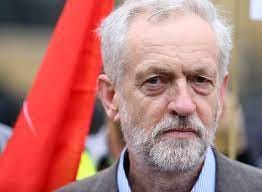Labour's Corbyn Problem
A painful reminder of an uncomfortable past
In 2015 Labour elected a long-serving backbencher called Jeremy Corbyn. Corbyn, a man more used to sparsely populated activist meetings than the front bench, was an unlikely choice of leader. Indeed, he wouldn’t have even made it past the ‘nominating’ stage if labour MPs hadn’t gifted him their votes at the last minute in order to ‘have a debate’. But this nomination quickly ran past the functionary ‘have a mad socialist debate’ stage as it grew into a candidacy that overtook any attempts to restrain him. Labour MPs didn’t just underestimate Corbyn, after-all there isn’t much to estimate, but they failed to realise the malaise that had set in under Ed Miliband’s leadership. So, when a man appeared offering bread and honey to the masses, an end to foreign wars, and a genuine loathing of the Conservative Party and the rich, he was a Labour Party activist’s wet dream made true.
Ever since that moment, Labour has never quite shaken off Corbyn. Despite the disastrous 2019 results, the terrible personal ratings, and the laundry list of concerns over antisemitism concerning Corbyn personally, his loyal supporters shout it’s all a smear. Their leader, defeated and deposed under false pretences, remains a symbol of ideological purity like no other. Not unlike the fanatical Trump supporters, the pro-Corbyn crew fantasise about the ‘mainstream media’ collaborating with each other, and recalcitrant MPs dethroned a true ‘leader of the people’.
You would think Labour could leave this painful episode behind. After all, it has been three years since the man himself left. In that time, Labour has gone from hopeless opposition condemned by the EHRC for its failures to address antisemitism to one riding high in the polls, rehabilitated in part by its renewed vigour in tackling discrimination. So why are people still talking about Corbyn? Is it because of his charm, charisma, or intellectual heft?
Well, it’s certainly none of those things; rather, it is party selection season, and Corbyn remains lurking uncomfortably in the background. Whilst Corbyn is no longer a Labour Party MP crucially, he remains a member of the party, and some believe that makes him available for re-selection as an MP. Even though his internal support has dwindled, some prominent members still remain on social media shouting about the ‘death of democracy’ in the party. This is somewhat ironic given what transpired when Corbyn was leader.
His four-year leadership, whilst institutionally defunct, has left a scar on the party’s soul. Between 2015-2019 the party became a bitter, angry place, a state personified by the people in the leader’s office, such as Matt Zarb Cousin. For some, this picture was at odds with the leader himself; Corbyn enjoyed a widely held persona as a civil man. However, that image fell apart under the slightest bit of questioning that he disapproved of. The vice documentary further underscored Corbyn’s irritability at the media and of being questioned. He was a man who liked the sound of his own voice and his views repeated back and seemingly unable to tolerate difference or rigorous questioning.
Labour between those years was not a fever pitch of democracy but an institution out of control with the levers of power it possessed. Corbyn ignored every norm going in managing political parties. When he’d lost the loyalty of his MPs, usually a necessary condition to remain leader, he simply ignored it, instead citing his support amongst the membership as the basis of his ‘legitimacy’. Never mind the millions of labour voters the MPs represented, it was the few hundred thousand who’d joined labour for a quid in the sweet summer of 2015 that mattered.
He was not only unwilling to acknowledge the game was up but was happy to weaponise that membership against their own MPs. From votes for foreign policy to the lack of ‘support’ for Corbyn, MPs turned from guards to prisoners. Alan Johnson was exactly right when arguing Corbyn supporters would lean on the ‘culture of betrayal’ to explain their loss, and it is that attitude that exemplifies just how deep the rot had gone. Labour had ceased to be a functional party but a bitterly divided cult-like organisation.
When self-proclaimed journalists, i.e., thin-skinned ideologues such as Owen Jones, question the role reversal that has taken place, it is hard not to laugh. The difference between what happened under Corbyn and now is Corbyn is not being punished for being ‘left wing’ but for his failure to acknowledge the legitimacy of the EHRC report. Indeed, he has stuck to his line that the issue of antisemitism in the labour party has been played up by his political enemies. It is a line as sickening as it is ridiculous; opponents of Jeremy Corbyn didn’t need to cook up a report or instances of antisemitism to make him unpopular, they just needed to find an opponent who didn’t trip over their own shoelaces.
Political parties exist as institutions with core values; if you betray or cannot acknowledge those core values, you no longer belong to that party. Political parties do not function in the same way as nation-states- removal from the party is not removal from the polity. You are free to join or set up an alternative, and if enough people agree with your mission, you can compete in elections. To complain that a party is ‘undemocratic’ by defending its core values is to eviscerate what parties mean in the first place. It is as politically illiterate as it is deeply dangerous to argue the opposite.
Keep reading with a 7-day free trial
Subscribe to Theory Matters to keep reading this post and get 7 days of free access to the full post archives.


